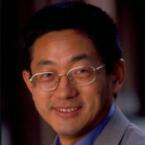Join us for a free one-day workshop for educators at the Japanese American National Museum, hosted by the USC U.S.-China Institute and the National Consortium for Teaching about Asia. This workshop will include a guided tour of the beloved exhibition Common Ground: The Heart of Community, slated to close permanently in January 2025. Following the tour, learn strategies for engaging students in the primary source artifacts, images, and documents found in JANM’s vast collection and discover classroom-ready resources to support teaching and learning about the Japanese American experience.

Tan, Guofu
Contact Information
Professor, Department of Economics
USC College of Letters, Arts & Sciences
213-740-3520
guofutan@usc.edu
Education
-
Ph.D., Economics, California Institute of Technology, 1990
-
M.Sc., Economics, California Institute of Technology, 1987
Background
Professor Tan’s research areas include business strategy and industrial organization, antitrust and competition policy, auction theory, microeconomic theory, and the Chinese economy. His current research projects involve competition in international telephone markets, platform competition, bargaining theory with applications, and the welfare standards in China’s Anti-Monopoly Law. As a consultant, Professor Tan has provided advice to a number of public and private sector clients with respect to competition and regulatory matters in several industries. He previously taught at the University of British Columbia and Hong Kong University of Science and Technology and was T.D. MacDonald Chair in Industrial Economics at the Canadian Competition Bureau. Professor Tan is currently a Chang Jiang Scholar in China, an associate editor of International Journal of Industrial Organization, referees for numerous journals, and a member of many academic organizations and committees.
Description of Research
Summary of Reserach Interests
My research focuses on auction theory, industrial organization, competition and regulatory policies, and the Chinese economy. My most recent work is concerned with collusion, entry, investments and resale in auction markets; all-units discounts and other loyalty programs; competition in international telephone markets; Nash bargaining with log-convexity; platform competition and standardization; and economic analysis of competition policy and the implications for China.
Selected Publications
-
Guofu Tan and Heng Ju, "Bilateral Market Structure and Regulatory Policies in Internatioanl Telephone Markets," International Economic Review.
-
Guofu Tan, "Equilibria in Second-Price Auctions with Private Participation Costs and Values," Game and Economic Behavior.
-
Guofu Tan, "Nash Bargaining wtih Log-convexity," Economic Theory.
-
Guofu Tan, "All-Units Discounts as a Partial Foreclosure Device," Rand Journal of Economics.
-
Guofu Tan, "Economics and Private Antitrust Litigation in China," Competition Policy International 9, 123-52.
-
Pingping Shan, Guofu Tan, Simon J. Wilkie and Michael A. Williams, "China’s Anti-Monopoly Law: What is the Welfare Standard?", Review of Industrial Organization (2012).
-
Harrison Cheng and Guofu Tan, "Asymmetric Common Value Auctions with Applications to Private Value Auctions with Resale", Economic Theory 45( October 2010), 253-290.
-
Guofu Tan and Ruqu Wang, "Coalition Formation in the Presence of Continuing Conflict", International Journal of Game Theory 39 (March 2010), 273-299.
-
Guofu Tan, "Recent Developments in Industrial Organization: A Selective Review" In Industrial Organization in Canada: Empirical Evidence and Policy Challenges (2010) edited by Zhiqi Chen and Marc Duhamel.
-
Ken Hendricks, Robert Porter and Guofu Tan, "Bidding Rings and the Winner's Curse", RAND Journal of Economics 39 (2008), 1018-1041.
Honors and Awards:
-
Fellow of the Chinese Economists Society, 1995-present
-
T.D. MacDonald Chair in Industrial Economics, Competition Bureau, Canada, 2000-01
-
Sloan Foundation Dissertation Fellowship, 1988-89
Featured Articles
Please join us for the Grad Mixer! Hosted by USC Annenberg Office of International Affairs, Enjoy food, drink and conversation with fellow students across USC Annenberg. Graduate students from any field are welcome to join, so it is a great opportunity to meet fellow students with IR/foreign policy-related research topics and interests.
RSVP link: https://forms.gle/1zer188RE9dCS6Ho6
Events
Hosted by USC Annenberg Office of International Affairs, enjoy food, drink and conversation with fellow international students.
Join us for an in-person conversation on Thursday, November 7th at 4pm with author David M. Lampton as he discusses his new book, Living U.S.-China Relations: From Cold War to Cold War. The book examines the history of U.S.-China relations across eight U.S. presidential administrations.




